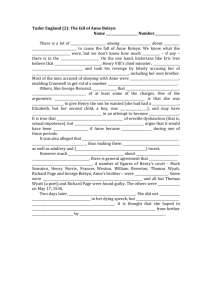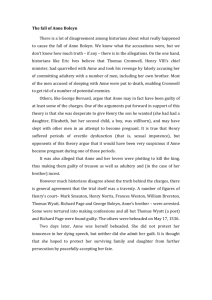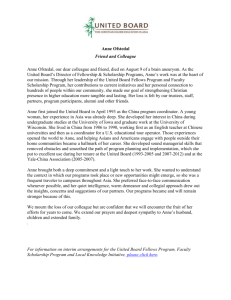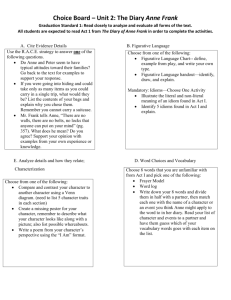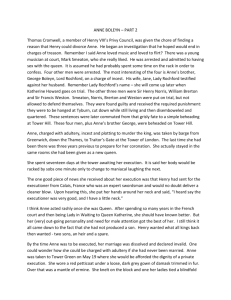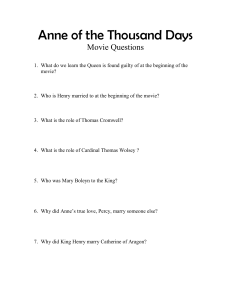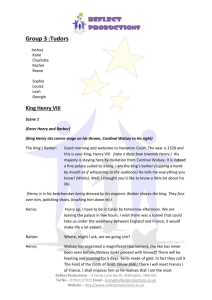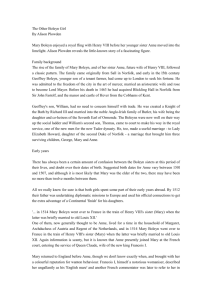Lesson 3 - Anne Boleyn - faith-lyon
advertisement
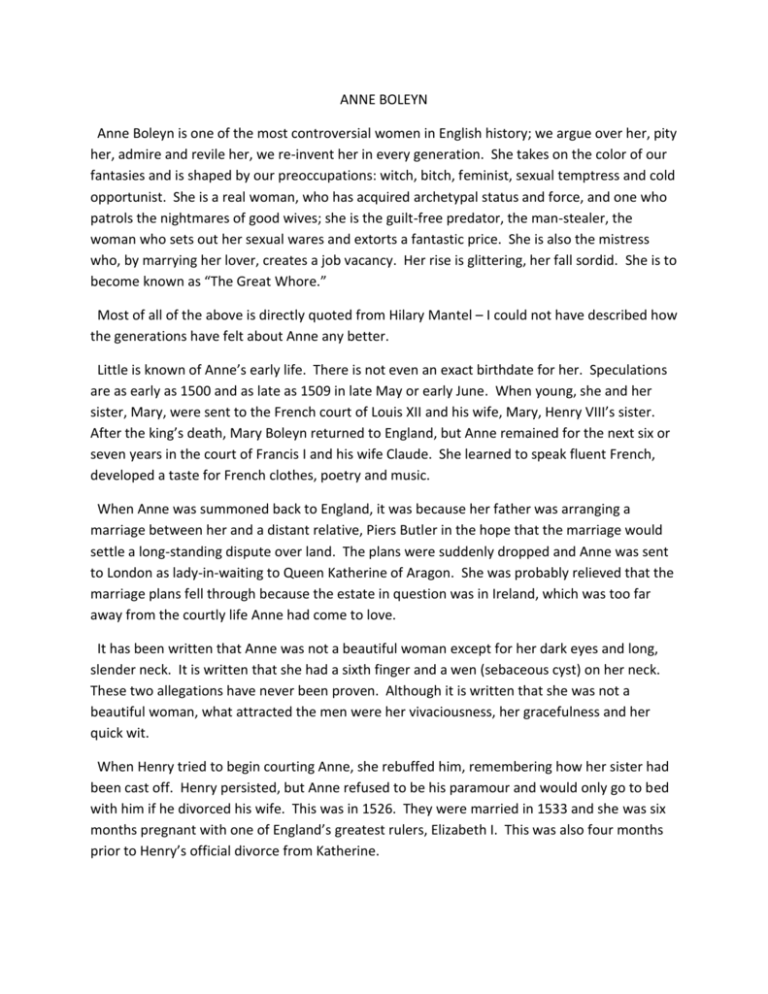
ANNE BOLEYN Anne Boleyn is one of the most controversial women in English history; we argue over her, pity her, admire and revile her, we re-invent her in every generation. She takes on the color of our fantasies and is shaped by our preoccupations: witch, bitch, feminist, sexual temptress and cold opportunist. She is a real woman, who has acquired archetypal status and force, and one who patrols the nightmares of good wives; she is the guilt-free predator, the man-stealer, the woman who sets out her sexual wares and extorts a fantastic price. She is also the mistress who, by marrying her lover, creates a job vacancy. Her rise is glittering, her fall sordid. She is to become known as “The Great Whore.” Most of all of the above is directly quoted from Hilary Mantel – I could not have described how the generations have felt about Anne any better. Little is known of Anne’s early life. There is not even an exact birthdate for her. Speculations are as early as 1500 and as late as 1509 in late May or early June. When young, she and her sister, Mary, were sent to the French court of Louis XII and his wife, Mary, Henry VIII’s sister. After the king’s death, Mary Boleyn returned to England, but Anne remained for the next six or seven years in the court of Francis I and his wife Claude. She learned to speak fluent French, developed a taste for French clothes, poetry and music. When Anne was summoned back to England, it was because her father was arranging a marriage between her and a distant relative, Piers Butler in the hope that the marriage would settle a long-standing dispute over land. The plans were suddenly dropped and Anne was sent to London as lady-in-waiting to Queen Katherine of Aragon. She was probably relieved that the marriage plans fell through because the estate in question was in Ireland, which was too far away from the courtly life Anne had come to love. It has been written that Anne was not a beautiful woman except for her dark eyes and long, slender neck. It is written that she had a sixth finger and a wen (sebaceous cyst) on her neck. These two allegations have never been proven. Although it is written that she was not a beautiful woman, what attracted the men were her vivaciousness, her gracefulness and her quick wit. When Henry tried to begin courting Anne, she rebuffed him, remembering how her sister had been cast off. Henry persisted, but Anne refused to be his paramour and would only go to bed with him if he divorced his wife. This was in 1526. They were married in 1533 and she was six months pregnant with one of England’s greatest rulers, Elizabeth I. This was also four months prior to Henry’s official divorce from Katherine. It is said the courtship lasted longer than the marriage. They had terrible shouting matches and then they would make up. If Anne thought Henry was looking at other women, she made jealous scenes. By 1536, Anne miscarried two male babies, and Henry was looking at someone else who would become Queen #3. Next week – The End for Anne Boleyn
